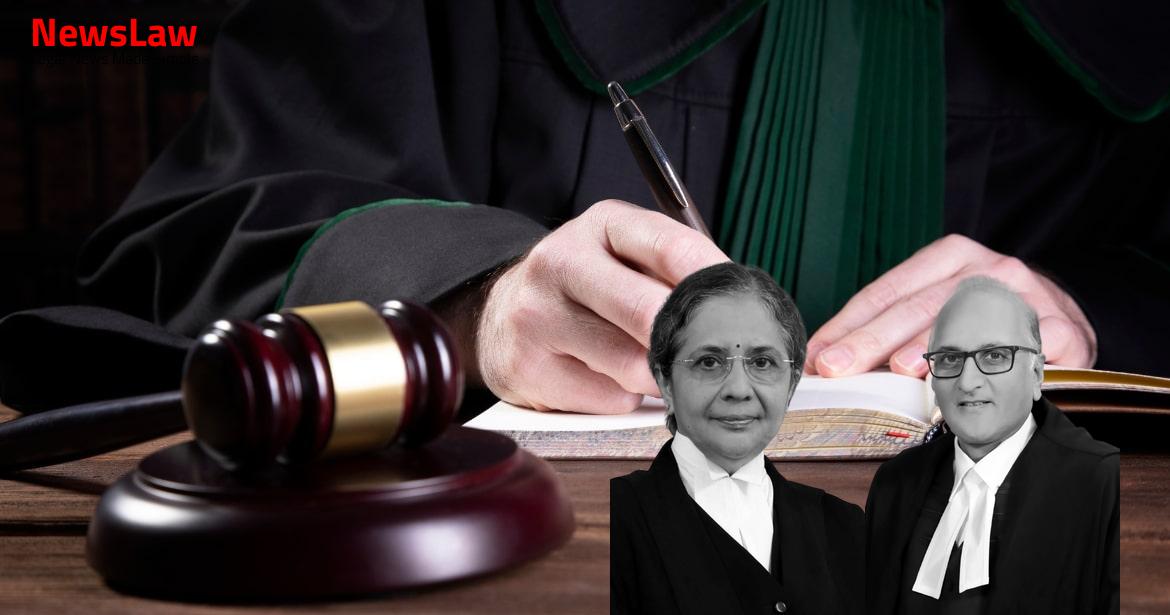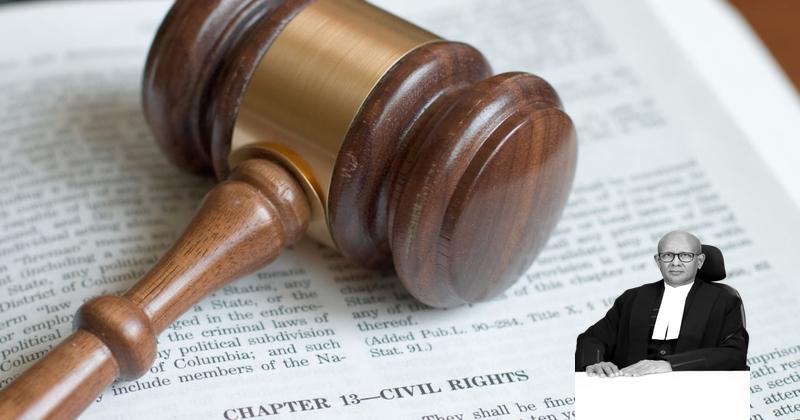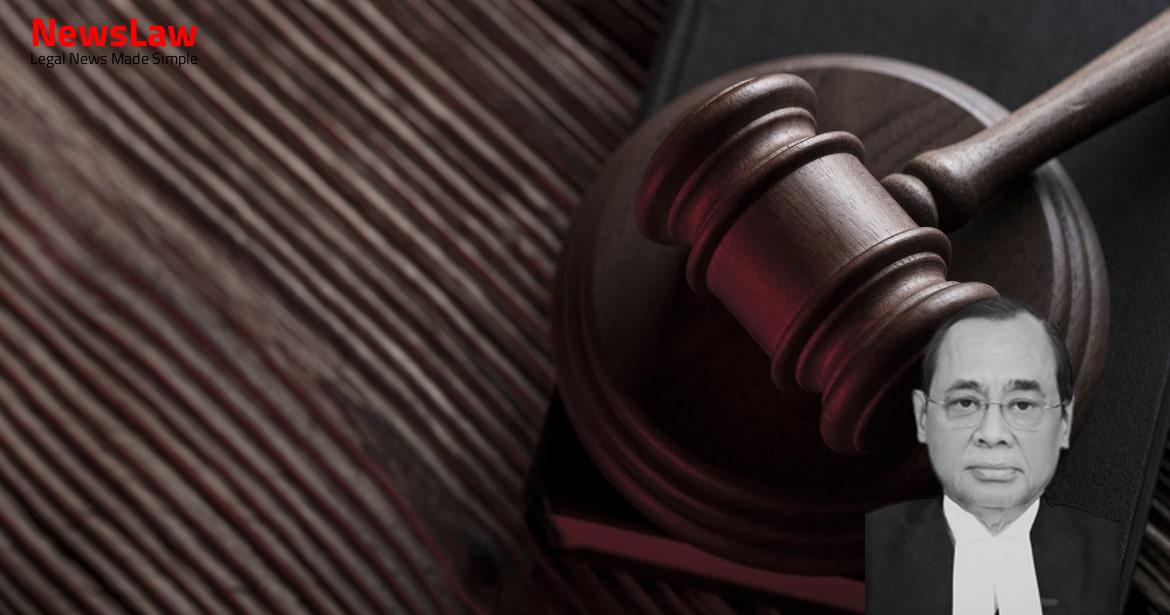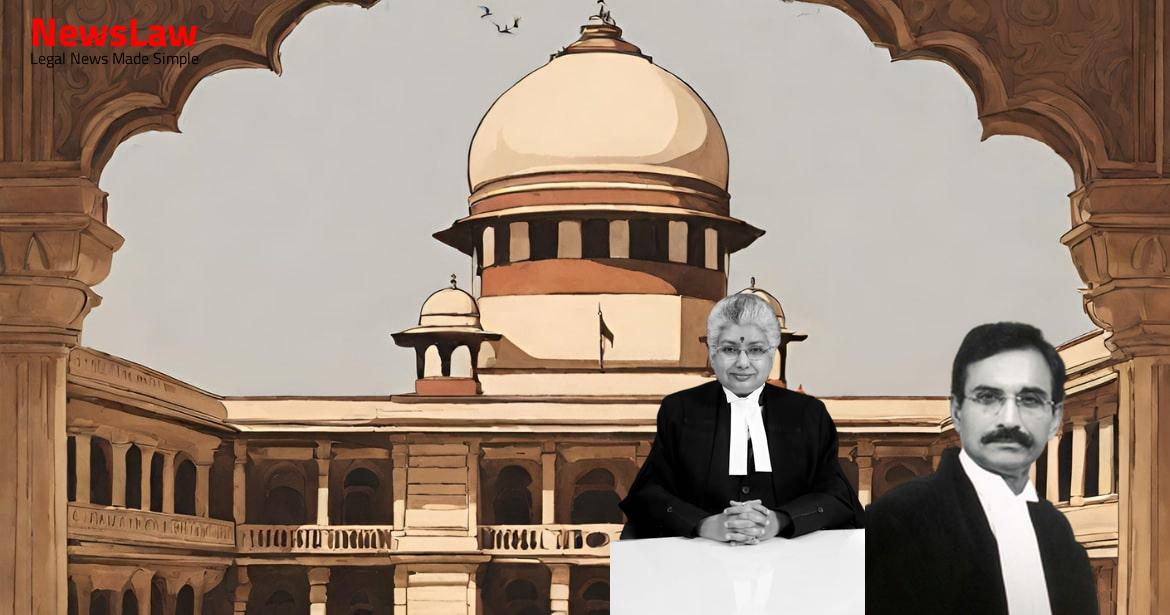This blog delves into a recent court case where the rejection of a suit for injunction was based on the court’s legal analysis. Exploring the significance of following proper procedures and considering previous judgments in determining the maintainability of a lawsuit. Stay tuned for insights into the intricacies of legal proceedings and court decisions.
Facts
- The plaintiff is in exclusive possession of the suit schedule property.
- Defendants have no right, title, and interest in the suit schedule property and were never in possession of it.
- Documents establish the plaintiff as the owner of the suit schedule property.
- The land in question was converted for non-agricultural use by the Panchayath, and hence RTC is not written for the property.
- Both the 1995 Suit and KIC Suit-I were tried together and disposed of by a common judgment.
- KIC claimed ownership of the property and resistance to interference with its possession.
- KIC Suit-I was filed during the pendency of the 1995 Suit, claiming ownership and conversion of the land for non-agricultural use.
- KIC filed another suit, KIC Suit-II.
- Up-to-date taxes have been paid for the suit schedule property.
- RTC extracts show that 4 acres of land are under cultivation but the cultivator is not mentioned.
- Appellants established their continuous possession and cultivation of the suit schedule property since 1929.
- Appellants perfected title against the Karnataka Government in 1963.
- No reliance could be placed on the conversion certificate presented by the Appellant Corporation as it was a disputed Xerox copy.
- The Assistant Commissioner’s endorsement revealed that the proceedings regarding land conversion were not available in the office.
- All courts including the Apex Court had decided on the issue of deemed cancellation of grant of land.
- The Karnataka Government had lost title and right over the suit schedule property, thus it had no authority to grant it to the 5th defendant.
- Defendants were never in possession of the suit schedule property.
- KIC’s suit was dismissed due to an ineffective grant in their favor and their lack of possession of the property.
- High Court confirmed a deemed cancellation of the grant to KIC due to improper procedures followed during the alleged grant.
Also Read: Electoral Malpractices in Mayor Election
Arguments
- Learned senior counsel argued that the civil court must issue summons to the respondents before considering the maintainability of the suit.
- In this case, the trial court, without issuing summons, decided that the suit was not maintainable.
- This decision was against the law, and the High Court was justified in overturning it.
- Referring to the case of Anathula Sudhakar v. P. Buchi Reddy, Ms. Suri claimed that the suit in question was for an injunction, not for claiming ownership or title to the property.
Also Read: Balancing Power and Transparency: Electoral Bonds Struck Down, Disclosure Mandated
Analysis
- The trial court rejected the plaint in KIC Suit-II considering the history of litigation and the issue of title that was directly in question.
- The omission of KIC to claim relief of declaration of ownership in the earlier suit (KIC Suit-I) barred the subsequent suit (KIC Suit-II) for declaration of title under Order II Rule 2(2) CPC.
- A suit for injunction simpliciter generally focuses on possession, not directly on title, unless title is crucial for determining possession.
- The High Court held that KIC’s grant of land was deemed to have been cancelled, removing its locus standi to file a suit for declaration based on that grant.
- Courts upheld trial courts’ jurisdiction to reject frivolous suits under Order VII Rule 11 CPC and to avoid relitigating points already determined.
- KIC appealed the rejection of its plaint in KIC Suit-II, arguing that it was not barred by res judicata due to different issues being involved in the subsequent suit.
- The subsequent appeal and review petitions were rejected, confirming the cancellation of KIC’s grant and appropriateness of the injunction.
- The High Court affirmed the decision on possession and the cancellation of the grant, which was not challenged by KIC.
- KIC’s second appeal was also dismissed by the High Court, affirming the findings on possession and grant cancellation.
- Courts should judiciously decide whether to delve into title issues in injunction suits or direct the plaintiff to file a separate declaratory suit, based on the circumstances of the case.
- In suits for prohibitory injunction concerning immovable property, the following remedies can be sought: a) filing a suit for declaration and possession with or without an injunction when a cloud is raised over the plaintiff’s title and he lacks possession, b) a finding on title cannot be made in a suit for injunction unless there are appropriate pleadings and issues related to title, c) courts should not dismiss a plaint solely based on a previous judgment barring a later suit, as seen in Alka Gupta v Narendr Kumar Gupta, d) rejection of a plaint at any stage can be justified as per Vithalbhai (P) Ltd. v Union Bank of India, e) the principle of res judicata is integral to the judicial system as established in M. Nagabhushana v State of Karnataka & Others.
- The impugned judgment is considered to be in error
- The previous proceedings had already concluded the issue of title
- Despite the conclusion in previous proceedings, the trial court had to proceed with the suit
Also Read: Recall of Resolution Plan Approval: Legal Analysis
Decision
- The impugned judgment is set aside
- The appeal is allowed
- No order on costs
Case Title: SRI LANKAPPA Vs. KARNATAKA INDUSTRIAL CORPORATION (2021 INSC 841)
Case Number: C.A. No.-007545-007545 / 2021



